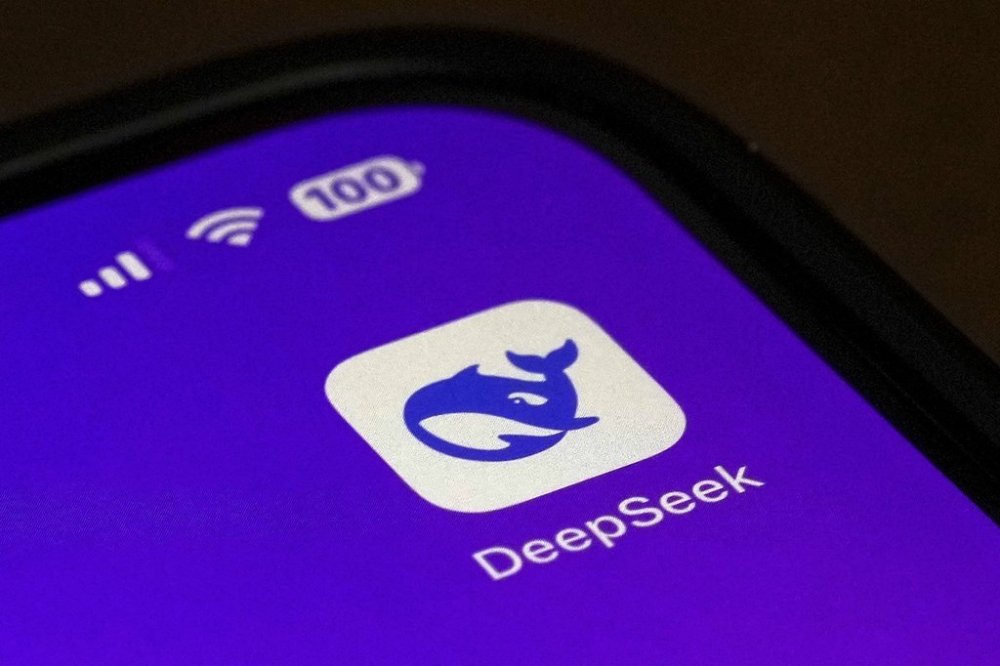UBC bans Chinese AI DeepSeek from its devices and networks, citing privacy, security
Advertisement
Read this article for free:
or
Already have an account? Log in here »
To continue reading, please subscribe:
Monthly Digital Subscription
$0 for the first 4 weeks*
- Enjoy unlimited reading on winnipegfreepress.com
- Read the E-Edition, our digital replica newspaper
- Access News Break, our award-winning app
- Play interactive puzzles
*No charge for 4 weeks then price increases to the regular rate of $19.00 plus GST every four weeks. Offer available to new and qualified returning subscribers only. Cancel any time.
Monthly Digital Subscription
$4.75/week*
- Enjoy unlimited reading on winnipegfreepress.com
- Read the E-Edition, our digital replica newspaper
- Access News Break, our award-winning app
- Play interactive puzzles
*Billed as $19 plus GST every four weeks. Cancel any time.
To continue reading, please subscribe:
Add Free Press access to your Brandon Sun subscription for only an additional
$1 for the first 4 weeks*
*Your next subscription payment will increase by $1.00 and you will be charged $16.99 plus GST for four weeks. After four weeks, your payment will increase to $23.99 plus GST every four weeks.
Read unlimited articles for free today:
or
Already have an account? Log in here »
Hey there, time traveller!
This article was published 19/03/2025 (234 days ago), so information in it may no longer be current.
VANCOUVER – The University of British Columbia has banned Chinese AI tool DeepSeek’s applications from being used or installed on university-owned devices and networks, citing “a high degree of privacy and security risk.”
The university said it reached the decision after a review of public information and third-party assessments of DeepSeek’s artificial intelligence applications.
“While popular, DeepSeek’s applications raise privacy and security concerns, particularly regarding extensive data collection and sharing, including personal information and the right to log keystrokes, along with weak encryption and security practices,” UBC says on its “privacy matters” website.

“The app transmits much of this personal data, some without encryption,” it adds.
The applications have been banned from devices that access any UBC system using a user login, such as its library and wireless systems and VPN.
University spokesman Matthew Ramsey said DeepSeek was the only AI tool banned at UBC, and there were no plans to restrict others, such as ChatGPT.
UBC said it would employ “preventative measures” to block DeepSeek applications on its network and “strongly recommends” against their use on personal devices.
DeepSeek did not immediately respond to an interview request.
DeepSeek caused a storm in world tech markets in late January when it was first released, impressing experts, alarming Silicon Valley and becoming the No. 1 downloaded free app on Apple’s iPhone store.
Last month, the federal government restricted DeepSeek’s chatbot from some of its mobile devices and is recommending other agencies and departments follow suit.
AI expert Steve DiPaola, director of the Cognitive Science Program at Simon Fraser University, said DeepSeek’s launch had upended assumptions that only billionaire-funded Silicon Valley could create powerful AI tools and models.
But he said there were security concerns that data collected by DeepSeek could end up with the Chinese government.
DiPaola said a shift to smaller, open-source models could change the AI landscape to reduce Canadians’ reliance on big U.S. corporations.
“I think the Canadian perspective is (that) having your data go to China is a problem, but I think having your things go to Silicon Valley in the U.S. might be just as big, or at least close to the same kind of problem,” said DiPaola.
“I think we’re also thinking that maybe we don’t want to go to the U.S. and we don’t want to deal with Elon Musk,” he said, referring to the Tesla CEO who is also the CEO of xAI.
Feroot Security, a Canadian cybersecurity company, said last month that DeepSeek’s website had computer code that could send some user login information to a Chinese state-owned telecommunications company that has been barred from operating in the United States.
DiPaola said it was important to launch homegrown AI systems that would allow Canadians to not rely on any other country.
UBC says students and others should uninstall DeepSeek’s applications from any devices used for university business or to access its systems, and refrain from using them through a web browser.
However, it says the DeepSeek Model — the “underlying, open-source architecture” for the AI system — is not known to be a risk if downloaded from “reputable sources.”
— With files from the Associated Press
This report by The Canadian Press was first published March 19, 2025.

